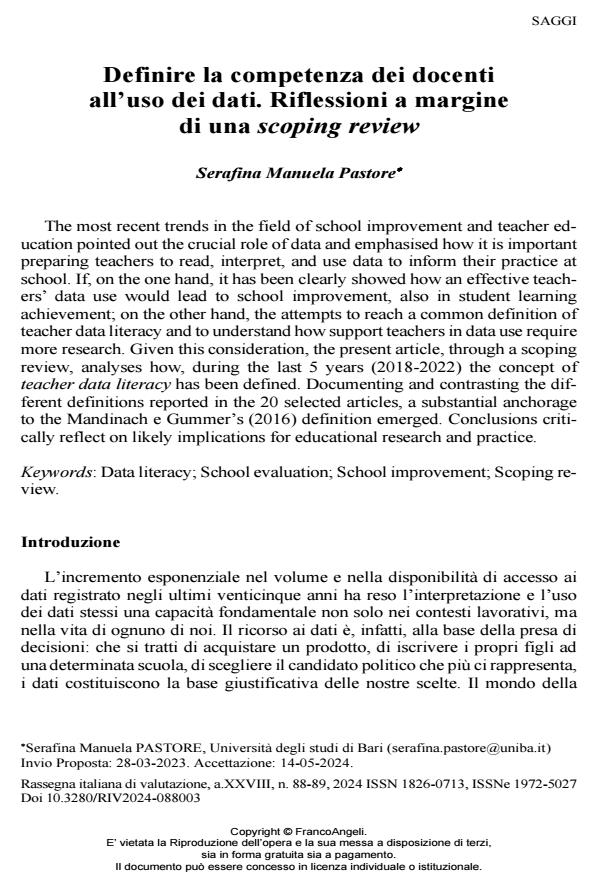Definire la competenza dei docenti all’uso dei dati. Riflessioni a margine di una scoping review
Journal title RIV Rassegna Italiana di Valutazione
Author/s Serafina Manuela Pastore
Publishing Year 2024 Issue 2024/88-89
Language Italian Pages 22 P. 33-54 File size 566 KB
DOI 10.3280/RIV2024-088003
DOI is like a bar code for intellectual property: to have more infomation
click here
Below, you can see the article first page
If you want to buy this article in PDF format, you can do it, following the instructions to buy download credits

FrancoAngeli is member of Publishers International Linking Association, Inc (PILA), a not-for-profit association which run the CrossRef service enabling links to and from online scholarly content.
The most recent trends in the field of school improvement and teacher education pointed out the crucial role of data and emphasised how it is important preparing teachers to read, interpret, and use data to inform their practice at school. If, on the one hand, it has been clearly showed how an effective teachers’ data use would lead to school im-provement, also in student learning achievement; on the other hand, the attempts to reach a common definition of teacher data literacy and to understand how support teachers in data use require more research. Given this consideration, the present article, through a scoping review, analyses how, during the last 5 years (2018-2022) the concept of teacher data literacy has been defined. Documenting and contrasting the different definitions reported in the 20 selected articles, a substan-tial anchorage to the Mandinach e Gummer’s (2016) definition emerged. Conclusions critically reflect on likely implications for edu-cational research and practice.
Keywords: Data literacy; School evaluation; School improvement; Scoping review.
- Promuovere l'autovalutazione: dal setting formativo all'aula scolastica katia Montalbetti, in EXCELLENCE AND INNOVATION IN LEARNING AND TEACHING 1/2025 pp.45
DOI: 10.3280/exioa1-2025oa20581
Serafina Manuela Pastore, Definire la competenza dei docenti all’uso dei dati. Riflessioni a margine di una scoping review in "RIV Rassegna Italiana di Valutazione" 88-89/2024, pp 33-54, DOI: 10.3280/RIV2024-088003